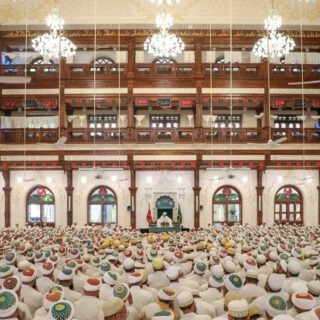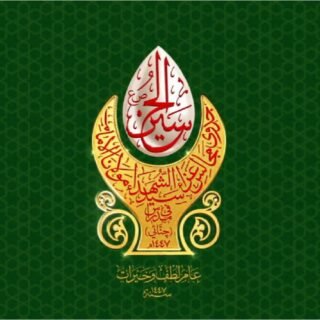All things are created with balance and are aligned with Allah’s adal (justice). Maulana Ali AS, his two sons, Imam Hasan and Imam Husain AS, his progeny AS, and in their stead, Doat Mutlaqeen RA, are Allah’s manifestation of justice. They mediate and deliver verdicts guided by Allah’s truth. Each act and decision is infused with both fairness and compassion. And as Rasulallah SAW stated, ‘Allah’s most beloved amongst all people on the Day of Judgement is a just Imam.’
The justice and compassion of Maulana Ali AS has no parallel. He mediated and arbitrated innumerable disputes and cases throughout his lifetime, teaching and mentoring learned judges on how to fairly, objectively, and kindly arrive at a verdict. A man quarreled with Maulana Ali AS and took him to a judge. The judge addressed the man by his first name, but addressed Maulana Ali AS more respectfully, with his kunyat ‘Aba al Hasan.’ Maulana Ali AS asked the judge to address them both in the same manner. He cautioned him against showing even the slightest bias toward one party over another. In another case, Rasulallah SAW sent Maulana Ali AS to resolve a dispute after one of Rasulallah’s SAW ambassadors disobeyed his orders, leading to unnecessary bloodshed. He gave Maulana Ali AS funds and instructed him to distribute blood money (diya) to those families who had lost their men. Maulana Ali AS did so justly and considerately; instead of taking the extra funds back with him, he chose to give it away to the families. Maulana Ali AS taught us that justice should be unbiased and balanced but also replete with mercy.
Awliya Kiraam AS are Allah’s rightful rulers and arbiters of justice, showing us how to approach dispute resolution with compassion. Doat Mutlaqeen RA are no exception. Syedna Ismail Badruddin RA sent Syedna Ibrahim Vajihuddin RA and Syedi Luqmanji QS to Sironj to mediate a conflict amongst mumineen. Both sahebo discussed how to best resolve the issue; Syedi Luqmanji QS was of the opinion that we should be equitable, while Syedna Ibrahim Vajihuddin RA preferred an approach that would ensure both sides were placated. After the news of Syedna Ismail Badruddin’s RA wafaat and his conferring of nass upon Syedna Ibrahim RA reached Sironj, Syedna Ibrahim RA again approached Syedi Luqmanji QS about this issue. Addressing Maula, Syedi saheb QS stated, “You are now my Maula, I am your servant. I will do as you command.”
In Karbala, Imam Husain AS courageously upheld the principles of justice, fairness, and humanity in the name of truth and for mumineen’s salvation. After Imam Husain AS and his caravan had set up their camp in Karbala, troops and armies began to amass around them. On the 7th of Moharram, Zohar bin Qain RA suggested to Imam Husain AS that they fight now while the enemy’s numbers were small. Imam Husain AS refused; wars must be fought justly, and he would not start a war against muslimeen. Imam Husain AS watched his family and followers sacrifice themselves before his eyes. He fought the enemy, suffered thousands of wounds from arrows, spears, and rocks, ultimately sacrificing himself, all to absolve us of our sins. His final sajda on the Day of Ashura is the culmination of adal. For mumineen are required to lament their sins, and his shahadat itself compels us to grieve and mourn, which in turn secures Allah’s forgiveness and a place in Jannat.








